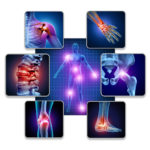By David Blyweiss, M.D., Advanced Natural Wellness
November 21, 2014
- Are you a java-drinking junkie?
- Watch out for this when purchasing a brewer
- The secret to a perfect cup of coffee
I remember waking up to the smell of brewing coffee every day when I was a kid. My mom used an old-fashioned stainless steel percolator. The smell literally permeated the house while I got ready for school or watched Saturday morning cartoons.
Today, I only know a handful of people who still use a percolator. In fact, many of them don’t even use a drip coffee maker anymore. Instead, fancy brewers that use coffee pods have invaded our homes.
I understand the attraction. They’re super convenient. You can have a steaming cup of coffee in hand in under a minute. And, there are enough flavors to turn even the most stubborn coffee critic into a java-drinking junkie.
These days, more than half of U.S. adults drink coffee every day, and most of them make it at home. This should be good news. That’s because coffee cuts your risk of heart disease, stroke, diabetes and certain cancers. It also helps protect your memory and enhance liver health.
But, there are a few problems with today’s coffee brewers that have me concerned. Let’s take a look at the health risks that might come with convenience.
MD Exposes the Hidden Danger to Your Eyes

When your eyesight starts to fail, it's a real problem. Suddenly you can't go to the grocery store... you can't get to the doctor if you have an emergency... you can't meet your friends for dinner…
Your "regular" doctor doesn't have time to keep up with the latest research. And the same goes for eye doctors. They go to school to learn how to fit you for glasses and contacts, but have no way of preventing the damage and loss of eyesight that threatens your freedom and independence.
Let me show you something that explains a LOT about how your eyes work.
In my FREE Special Report, I'll show you a HUGE, untapped resource for your eyes that safely and naturally restores clear, effortless eyesight.
Click here to get started...
We’ve become so used to buying foods and beverages encased in plastic that we often forget about the impact these man-made materials can have on our health. But the truth is, the compounds found in plastics leach into your foods and beverages. This is especially true when they’re exposed to heat, like the hot water in your coffee maker.
Put two and two together, and guess what happens when hot water hits one of those plastic pods? It releases those toxic chemicals and turns your cup of Joe it into a hormone-disrupter.
You see, the plastics in the pods can contain resins and plasticizers that mimic estrogen and throw your hormones out of balance. This contributes to estrogen dominance in men, breast cancer in women, reproductive disorders in both sexes and a whole host of other problems that are only now being explored in depth.
Now, you may have heard that bisphenol-A, or BPA, is the only plasticizer you need to worry about. But that’s just not true.
Even plastics that claim to be BPA-free can contribute to estrogen activity. In fact, almost all BPA-free plastics – regardless of the resins and plasticizers used – are known to release estrogens. Some of them have even more estrogen activity than ones that contain BPA.
That’s why some pods have me very concerned. Let’s take Keurig’s K-pods, as an example. Sure, they claim to be BPA-free. But the plastic in the cups is #7 – which carries a meaning of “other” plastics. What are these plastic compounds? We don’t know. Are they safe? Probably not.
It’s pretty much a sure bet those “other” plastics are still releasing estrogen-like compounds when exposed to hot water, especially when combined with the acids found in coffee.
Are You Suffering From...
- Love handles and a pot belly
- Romance that isn't what it used to
- Forgetfulness and inattention
- Low (or no) strength and endurance
- A sex drive that's shifted into neutral...or worse
If so...you may have Mature Male Burnout. Click here to discover more about this unique condition and what you can do about it.
So, that’s strike number one against these machines.
I also have another beef with them. That’s because they tend to encourage unhealthy coffee consumption.
You see, coffee in itself, is good for you. But when you start tossing in things like cream, sugar, chocolate syrup, artificial flavorings, colorings and preservatives… well, as you might guess, that turns it into nothing better than another pre-packaged and processed food. It also encourages you to drink much more of these beverages than is good for you.
It’s clear that plastics should never be in contact with your foods and drinks. And no food or beverage should ever be heated when plastics are involved.
So, what can you do?
I’m not a big coffee drinker. But when I do want to enjoy a cup on cold mornings, I use a glass coffee maker. It’s not a machine. In fact, it’s pretty “old school.” It’s simply a glass carafe with a paper filter. I measure out my own organic coffee blend, and then just pour boiling water through the filtered grounds.
An old-fashioned stainless steel percolator is a good choice, too. That’s what my mom used when I was a kid. And they’re still easy to find at online shopping outlets.
If you like your coffee with a little extra flavoring, skip all of the milks, sugars and syrups. Try this instead:
Place a can of unsweetened coconut milk in the fridge overnight. The next day, open the can and pour out the liquid. Scoop the separated cream into a bowl and whip it until it’s fluffy. Add a teaspoon of natural vanilla extract and a teaspoon or two of raw honey to taste. Whip it a little more until the ingredients are combined. (If you want to experiment with other flavors, try adding organic cacao, cinnamon, maple syrup or raw almond paste.)
Place a scoop on top of your coffee for a tasty treat that will rival even your favorite pod-flavoring.
Sources:
Freedman ND, et al. “Association of coffee drinking with total and cause-specific mortality.” N Engl J Med. 2012 May 17;366(20):1891-904.
Sartorelli DS et al. “Differential effects of coffee on the risk of type 2 diabetes according to meal consumption in a French cohort of women: the E3N/EPIC cohort study.” Am J Clin Nutr. 2010 Apr;91(4):1002-12.
Eskelinen MH, et al. “Caffeine as a protective factor in dementia and Alzheimer’s disease.” J Alzheimers Dis. 2010;20 Suppl 1:S167-74.
Larsson SC, et al. “Coffee consumption and risk of liver cancer: a meta-analysis.” Gastroenterology. 2007 May;132(5):1740-5.
Bhan A, et al. “Bisphenol-A and diethylstilbestrol exposure induces the expression of breast cancer associated long noncoding RNA HOTAIR in vitro and in vivo.” J Steroid Biochem Mol Biol. 2014 May;141:160-70.
Yang CZ, et al. “Most plastic products release estrogenic chemicals: a potential health problem that can be solved.” Environ Health Perspect. 2011 Jul;119(7):989-96.






